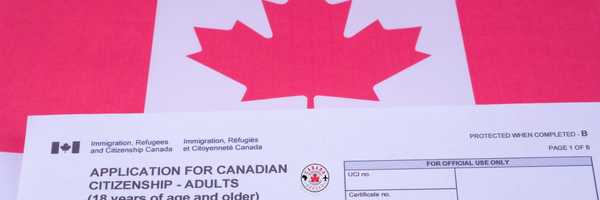Immigrating to Canada with Pets
When looking at the topic of immigration to Canada many peoples’ main concern is whether or not they can bring their pets along with them.
For many people, pets are a member of the family and the idea of having to move to Canada without them is unbearable.
Luckily Canada is pet friendly and you can bring pets with you when you move to Canada. Of course this would be dependent on the type of pet that you are looking to bring in with you.
Cats and dogs are allowed to accompany you when immigrating to Canada as long as you have the correct paperwork in order.
When moving to Canada with a pet The Canada Border Services Agency requires that the animals be Rabies vaccinated within the last twelve months and that you have the records with you to prove this. The fee for importing a domestic dog, cat or ferret is $30 Canadian. If you have more than one of these pets the fee is an additional $5 Canadian. Only animals (dogs, cats and ferrets) arriving from the United States of America are exempt from the inspection fees. The specific guidelines for a dog accompanying their owner who is immigrating to Canada are as follows:
- A rabies vaccination certificate OR a veterinary certificate
- Dogs that are less than three months do not require rabies certification but you will need to be able to prove their age
- The European Union pet passport is an acceptable alternative to the rabies vaccination certificate as long as all the required elements outlined below are included.
- The rabies vaccination certificate must contain all of the following information in regards to the animal:
- be written in English or French;
- be issued and signed by a licensed veterinarian;
- identify the animal (breed, sex, colour, and weight);
- state that the animal is vaccinated against rabies;
- indicate the date of vaccination;
- indicate the trade name and the serial number of the licensed vaccine; and
- specify the duration of immunity (otherwise, it will be considered valid for one year from the date of vaccination).
- The veterinary certificate must contain all of the following information in regards to the animal:
- be written in English or French;
- be issued and signed by a licensed veterinarian;
- identify the animal (breed, sex, colour, and weight);
- state that the animal has been in the exporting country since birth or for at least six months immediately preceding shipment to Canada; and
- be accompanied by documentation from a competent government authority, stating that rabies has not occurred in the country of origin for at least six months immediately preceding the animal’s shipment to Canada.
- A “competent government authority” refers to a veterinary agency or other government agency that manages a country’s animal health and welfare situation, as well as handles the responsibility of veterinary certification for the purposes of international trade. The document can be either:
- a letter issued on the competent government authority’s letterhead, which must be dated, stamped and signed by an official of the competent government authority in the country of origin; or
- a letter by the licensed veterinarian who issued the certificate, which must be endorsed by the competent government authority.
- If a dog does not meet the Canadian rabies import requirements, owners will be required, at their own expense, to:
- have the animal vaccinated against rabies within a specified period of time; and
- provide the vaccination record to a Canadian Food Inspection Agency office.
If you are looking to import a bird into Canada the animal may be subject to quarantine. You may also need additional documentation such as a CITES permit. It is important to determine what documents are required for your pet before arriving in Canada to avoid any hassles or the animal being denied entry. The associated charge for brining a bird into Canada are $35 Canadian for an import permit, $100 Canadian for the approval of a quarantine site for the bird, $35 Canadian for the inspection and $130 Canadian for overseeing the quarantine period. The quarantine period will be for a minimum of 45 days.
It is important to note that not all animals can be imported into Canada. Certain animals will be prohibited depending on the country that they came from and how they are classified by the Canadian Government.
When moving to Canada with pets it is also common to want to pack pet food for them so that you can feed them on arrival. Certain pet foods may be restricted and could be confiscated when you arrive in Canada. It is important to research if the food you wish to import is allowed or not, otherwise you may be best to purchase pet food on arrival. At most international airports you can purchase a small snack for the animal at shops within the arrivals and departures areas.
Many pet transport companies can assist you with this process. They will advise you of any additional requirements based on the airline being used as some airlines will not transport specific breeds of cats and dogs.
If you require any assistance please contact us! Or you can complete a free eligibility assessment below!

